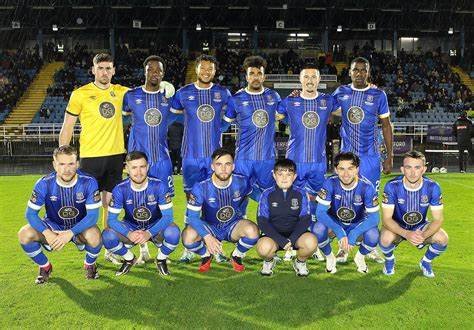“Eredmények” is the plural form of the Hungarian word “eredmény,” which translates to “result” in English. This term encompasses a wide range of outcomes, from sporting achievements and academic performances to scientific findings and the results of any given action or process.
This article will delve deeper into the concept of “eredmények” within the Hungarian context, exploring its various applications, cultural significance, and how it relates to different aspects of life in Hungary.
Understanding “Eredmények” in Different Contexts
Sports: In the realm of sports, “eredmények” are of paramount importance. They reflect the performance of athletes, teams, and even entire nations. Whether it’s a thrilling football match, a grueling cycling race, or a graceful figure skating routine, the “eredmények” determine the winners and losers.
Key phrases
“Jó eredményeket ért el” (He/She achieved good results)
“Rekord eredmények” (Record results)
“Váratlan eredmények” (Unexpected results)
Academics: In the academic sphere, “eredmények” signify the outcomes of students’ efforts. Exam scores, grades, and academic achievements all fall under this category.
Key phrases
“Jó tanulmányi eredmények” (Good academic results)
“Pozitív eredmények” (Positive results)
“Eredményes tanulmányok” (Successful studies)
Science and Research: Scientific research heavily relies on “eredmények.” Experiments are conducted, data is collected, and analyses are performed to arrive at a meaningful “eredmények.” These findings contribute to advancements in
Key phrases
“Kutatási eredmények” (Research results)
“Fontos tudományos eredmények” (Important scientific results)
“Meglepő eredmények” (Surprising results)
Business and Economics: In the business world, “eredmények” are crucial for measuring success. Profit margins, market share, and return on investment are all key “eredmények” that businesses strive to achieve.
Key phrases
“Gazdasági eredmények” (Economic results)
“Pozitív üzleti eredmények” (Positive business results)
“Kiemelkedő eredmények” (Outstanding results)
Everyday Life: Beyond these specific domains, “eredmények” are relevant in everyday life. The outcomes of our actions, decisions, and choices all contribute to our overall experiences.

Key phrases
“Jó eredményeket hozott” (It brought good results)
“Nem várt eredmények” (Unexpected results)
“Eredményes munka” (Successful work)
Cultural Significance of “Eredmények” in Hungary
In Hungarian culture, “eredmények” hold significant value.
Emphasis on Achievement: Hungarian society often places a strong emphasis on achievement and success. “Eredmények” are seen as a reflection of hard work, dedication, and talent.
Competition and Striving for Excellence: This emphasis on “eredmények” can be seen in various aspects of Hungarian life, from sports and academics to the workplace. Competition and the striving for excellence are often encouraged and celebrated.
Recognition and Reward: “Eredmények” are often recognized and rewarded. Awards, prizes, and public acclaim are given to individuals and teams who achieve outstanding “eredmények.”
“Eredmények” in the Digital Age
In today’s digital age, the concept of “eredmények” has evolved.
Online Platforms: Many online platforms, such as social media and search engines, are designed to showcase and measure “eredmények.”
Social Media: The number of followers, likes, and shares often serves as a measure of “eredmények” for individuals and businesses on social media platforms.
Search Engines: Search engine optimization (SEO) focuses on achieving high rankings in search engine results pages (SERPs), which are considered valuable “eredmények” for websites and online businesses.
Data-Driven Approach: In many fields, a data-driven approach is used to analyze and interpret “eredmények.” This involves collecting and analyzing large amounts of data to identify trends, patterns, and insights.
Learning Hungarian: “Eredmények” in Practice
If you are learning Hungarian, understanding the concept of “eredmények” is the plural crucial.
Vocabulary Building: Expanding your vocabulary related to “eredmények” will enhance your ability to communicate effectively in Hungarian.
Real-life Applications: Try to apply the concept of “eredmények” to real-life situations. For example, when discussing your studies, work, or hobbies, use relevant vocabulary related to “eredmények.”
Cultural Context: Understanding the cultural significance of “eredmények” in Hungary will help you better understand and navigate social interactions.
“Eredmények” in Hungarian Education
Emphasis on Standardized Tests: The Hungarian education system places significant emphasis on standardized tests, with “eredmények” on these exams often determining future academic and career paths.
Competitive Environment: This focus on standardized tests can create a highly competitive environment within the education system, where achieving good “eredmények” is paramount for students’ success.
The Role of “Érettségi”: The “érettségi” (Matura), the Hungarian university entrance exam, is a particularly important milestone. Excellent “eredmények” on the “érettségi” are crucial for gaining admission to prestigious universities and pursuing desired academic programs.
“Eredmények” in Hungarian Sports
“Eredmények” is the plural of the Hungarian national team and domestic clubs are closely followed by the public. Success on the international stage, such as qualifying for major tournaments like the World Cup and European Championship, is highly valued.
Other Popular Sports: Other popular sports in Hungary include handball, water polo, and ice hockey. Hungarian athletes have achieved significant “eredmények” in these sports at both national and international levels.
Olympic Games: The Olympic Games hold a special place in Hungarian sports. Hungarian athletes have consistently achieved impressive “eredmények” at the Olympics, particularly in sports such as fencing, water sports, and athletics.
Final Thoughts
“Eredmények” is the plural multifaceted concept with significant implications in various aspects of Hungarian life. From sports and academics to business and everyday life, “eredmények” play a crucial role in shaping individual and societal experiences. By understanding the meaning and cultural significance of “eredmények,” you can gain a deeper appreciation for Hungarian culture and enhance your communication skills in the language.
FAQs
What is the difference between “eredmény” and “siker”?
While both relate to achievement, “eredmény” primarily refers to the outcome of an action (e.g., test score), while “siker” encompasses the entire journey, including effort, perseverance, and personal growth.
How does the “érettségi” (Matura) exemplify the importance of “eredmények” in Hungary?
The “érettségi” is a crucial university entrance exam. Excellent “eredmények” are vital for admission to top universities, creating a highly competitive environment and emphasizing the significance of academic achievement in Hungarian society.
How can language learners effectively incorporate “Eredmények” into their Hungarian studies?
By learning relevant vocabulary, applying “eredmények” in real-life conversations, understanding the cultural significance of “eredmények,” observing how they are discussed in Hungarian society, and reflecting on their own personal “eredmények.”
To read more, Click Here













Leave a Reply